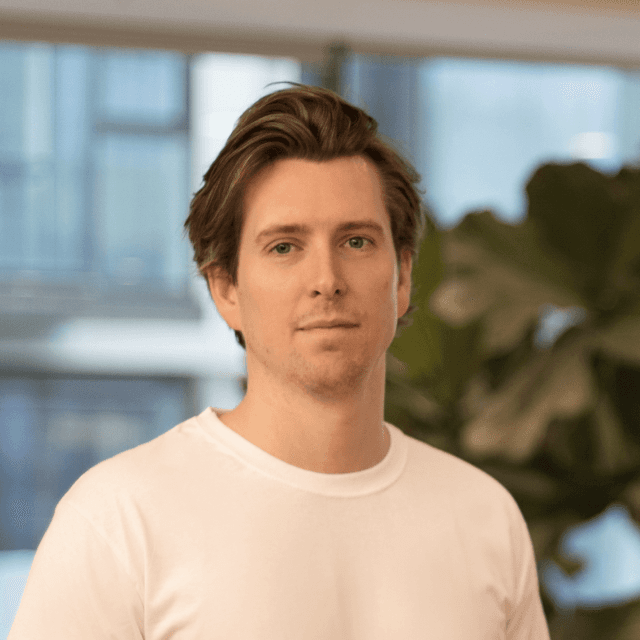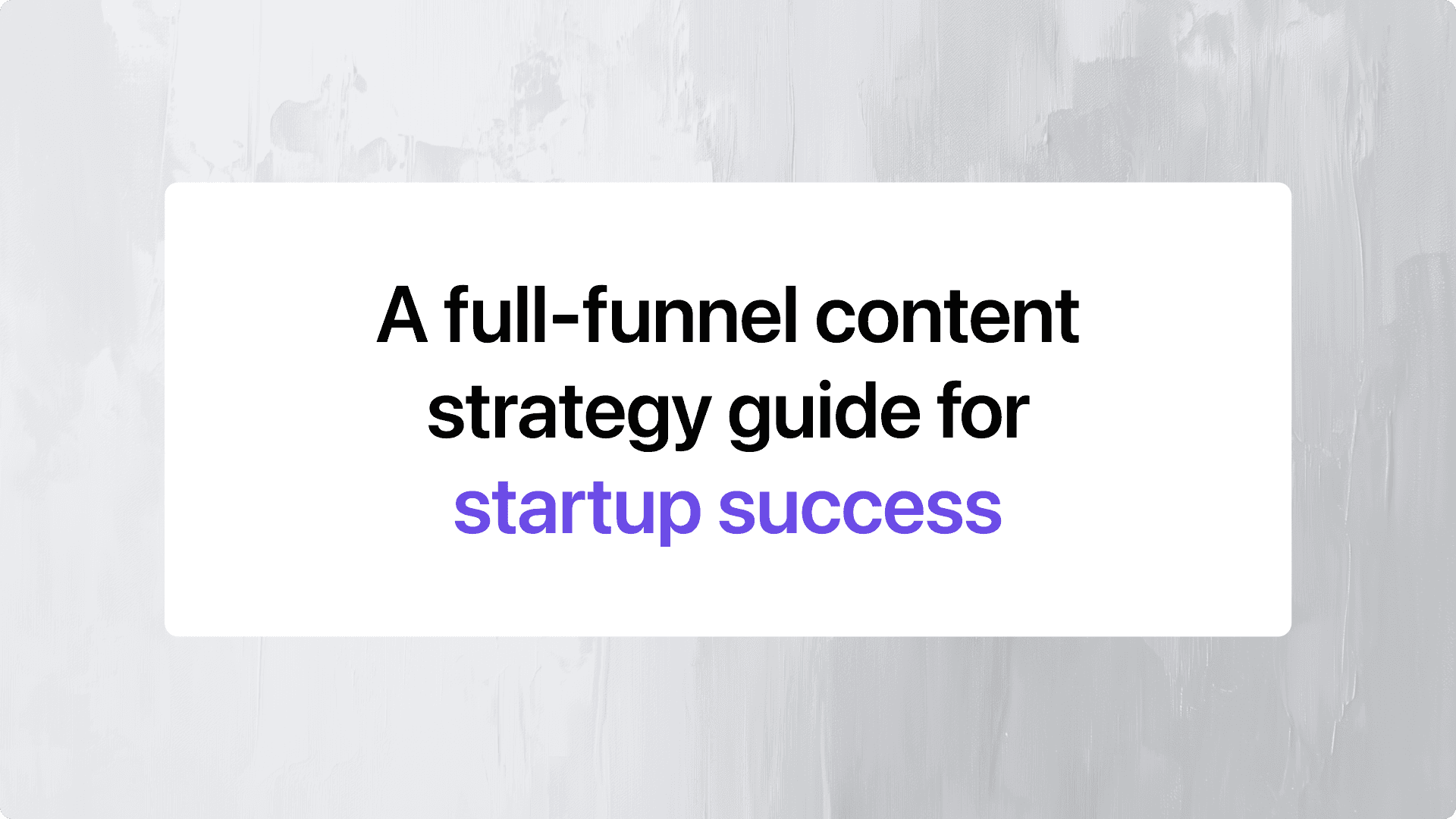Tuesday 26 September 2023
·

Ben Hacking
Co-founder & CEO
Image credit:
Arcane
tl;dr
About Alex & DELLI
Ben: Hi Alex – thanks for joining, for those less familiar with your work, can you provide an overview of your background?
Alex: I’ve always flirted with startups. It started in University, I participated in hackathons where I learned a lot and had fun tinkering. After stints with Sony and Spotify, I found my way to Deliveroo, becoming their UK Growth Operations Lead. After that experience, I wanted to go to a much smaller company to learn so I joined Fat Llama as their Growth Manager. Fat Llama had just graduated from Y Combinator and raised its Series A from Greylock, Atomico and Blossom, so our roadmap was ambitious. I was responsible for growing and launching new categories across the UK. We were very much starting from zero too which was a much different experience than boosting an already working growth engine with product market fit.
Next, I joined OYO, a Softbank backed hospitality tech startup, as their first marketing hire in the UK and grew that team to 14. At OYO, we found that there was correlation between app downloads and LTV, so we focused on increasing downloads, then expanding and retaining app users. Then COVID came, and the whole UK team, including myself, were let go. At first this was pretty brutal, but I used the time to redirect myself. I wanted to improve my brand marketing chops, so I joined The Eclectic where we created, launched, and grew D2C brands from scratch. I used my experience here to found TalkShop, a social shopping platform that offered shoppers free advice from experts via WhatsApp.
Ben: Are you still running TalkShop?
Alex: No, I wound it down in January. I raised pre-seed venture funding, saw high AOVs, repeat customers, and strong NPS scores, but the unit economics were difficult to scale.
Ben: So where have you taken your talents now?
Alex: I’m currently the Head of Growth at DELLI, the app to buy the best independent food and drink, all in your pocket. DELLI was founded by Simon Beckerman, who also founded Depop (acquired by Etsy), so it’s been an absolute branding and community masterclass working here. The team is full of wizards and the product empowers everyday makers. It’s been a lot of wholesome fun to work on expanding both sides of a marketplace with cross-side network effects.
Ben: For those who have yet to use DELLI can you briefly describe it?
Alex: On DELLI you shop products from registered independent food and drink businesses. The makers create a profile, make their goods, then list the products in their profile. Shoppers then browse and buy products. DELLI has everything from micro bakers to pickle purveyors and small-batch olive oil producers.
Ben: There’s some sort of limited supply element too, right?
Alex: Yup, each product is listed with a limited supply, so it creates a bit of fomo. We’ve borrowed lessons from the sneakerhead community who limit the supply of their drops to create hype and demand to increase product value. While we’re not exactly the same, DELLI’s limited supply does create a bit of purchase urgency as a result of product scarcity. For the makers, it’s great too because it’s a sustainable, efficient, and wasteless way to make.
Ben: Where is DELLI live today?
Alex: We’re nationwide in the UK, so we’re able to bring local goods to the whole population, but we’re expanding quite rapidly.
Adding a human touch to AI generation
Ben: What’s your day to day at DELLI look like?
Alex: The expansion that I just mentioned is my job. I spend my time on performance marketing, product, and brand. So this Head of Growth role is a natural culmination of all my previous experiences.
Ben: How is the Marketing team set up at DELLI?
Alex: We’re a humble bunch, but really talented. We see users come in through our community and have structured a team to support that. Our community team focuses on our makers, both strengthening relationships and supporting maker growth, as well as onboarding new makers. This team also activates offline through pop-ups, community events, and supper clubs. We also have a performance marketing team to acquire new users. TikTok’s been a big platform for us so this team is also creating really strong, engaging content for that channel.
I use AI to take me from 0 → 70% of the way done on many tasks.
Ben: Have you or the team used any AI tools to augment your work at DELLI?
Alex: Yes. I use AI to take me from 0 → 70% of the way done on many tasks. For example, I’ll use AI to generate marketing ideas, or for generating titles, descriptions, and headlines. AI will get me most of the way there and I’ll just edit the results and add DELLI’s brand voice to finish it off. Every startup is time and cash scarce, so I view AI as an extra pair of hands on the team that can accelerate us.
Ben: Have you found any AI tools that are able to augment DELLI’s brand voice for you?
Alex: Not a specific tool, but through prompt adjustments I’ve been able to improve the results an extra 5% or 10% to be 80% of the way done. As I manage my time, I have to decide if it’s worth spending the time editing a prompt to generate new responses, or just editing the original response myself.
With AI you can do a lot more with less. I expect companies to have smaller and smaller growth teams, which makes what you guys are working on super interesting
Ben: Looking ahead, how do you think AI will impact the marketing discipline in the years to come?
Alex: With AI you can do a lot more with less. I expect companies to have smaller and smaller growth teams, which makes what you guys are working on super interesting. I also expect a consolidation of AI tools so that everything is under one roof on a single platform. These small AI-assisted growth teams, with everything in one place, will be able to hit really big valuations.
Ben: If you had a magic wand, which workflows do you wish were more automated with AI?
Alex: A lot of time is still spent optimizing campaigns across channels. There’s been a massive improvement over the past decade, but it still requires a considerable amount of time to check each campaign and that you’re spending correctly.
Taking risks to put emerging UK Food-Makers on the Map
Ben: AI-generated or not, what's something unusual that DELLI’s tried in the last six months on the growth side?
Alex: We created a raffle in the DELLI app. We had Thomas Straker offer a home-dining experience where he’d come to your home and cook for you. For £1 you could enter to win it and all proceeds went to charity. Because it was Thomas Straker and that he would come to your home for the experience, the raffle generated massive amounts of DELLI downloads and installs. Internally, it was also such a departure from our standard campaigns so we had fun working on it.
Actionable advice
Too often, I see teams scale with pain point assumptions. There’s an easier and smarter approach which is to conduct user interviews and understand the real pain points.
Ben: You’ve got a breadth of valuable growth experience, both as an operator and advisor, what are some of the common problems you see with early stage companies?
Alex: Growing too fast without product market fit and relying on paid-acquisition too much. Teams can deceive themselves of success with acquisition metrics, but without retention or pay-back periods there isn’t a healthy future. The solution is to speak to your users. Too often, I see teams scale with pain point assumptions. There’s an easier and smarter approach which is to conduct user interviews and understand the real pain points.
Ben: What three things should every first growth hire do?
Alex: The first thing I do whenever joining any company is speak to users. It’s so important to understand why they’ve downloaded an app, purchased a product, or even churned. This will provide foundational clarity on who the ideal consumer is and who the ideal consumer isn’t. Second, would be defining what success looks like, both for the company and the role. With this you can create targets and plans to reach them. Third would be understanding budgets. Budget knowledge will inform what levers to pull in pursuit of your goals.
Ben: What tips do you have for students or young professionals, wanting to break into growth?
Alex: I’d start with a Reforge cohort. I was fortunate to enrol in Reforge’s growth series in 2019 after my first growth role and it brought so much clarity to the career. In addition, I’d recommend an internship at a Pre-seed or Seed company, because you’ll get a breath of experience and can make immediate and measurable impacts.
Ben: Thanks Alex, if readers want to connect further, how can they?
Alex: Shoot me a request with a note on LinkedIn.







